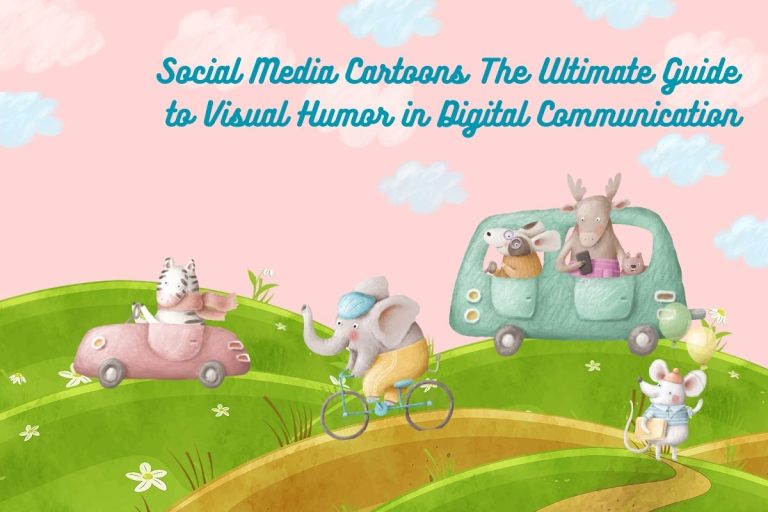What is Social Media Awareness and Why Does It Matter?
Social media awareness means understanding how to use social platforms safely, responsibly, and effectively. In today’s digital world, more than 5 billion people actively use social media, making it essential for everyone to learn proper digital habits.
Think of social media awareness like learning traffic rules before driving. Just as you need to know road signs to drive safely, you need to understand digital rules to navigate social platforms without getting hurt or causing problems.
Understanding Social Media’s Impact on Our Lives
The Good Side of Social Media
Social media brings many wonderful benefits to our daily lives:
Educational Opportunities
- Students can join study groups and learn from experts worldwide
- Teachers share educational content through YouTube and Instagram
- Online courses make learning accessible to everyone
Professional Growth
- LinkedIn helps people find jobs and build career networks
- Small businesses reach customers without expensive advertising
- Freelancers showcase their skills and find clients globally
Personal Connections
- Families stay connected across different countries
- People with similar interests form communities and friendships
- Support groups help individuals facing similar challenges
PEOPLE ALSO READ :I Dislike Social Media A Complete Guide to Understanding Why and What You Can Do About It
The Challenges We Face
However, social media also creates serious problems that require our attention:
Mental Health Concerns Research shows that excessive social media use can lead to anxiety, depression, and low self-esteem, especially among teenagers and young adults.
Privacy and Security Risks
- Personal information can be stolen and misused
- Cybercriminals target users through fake profiles
- Data breaches expose private photos and messages
Misinformation Spread Digital literacy helps users identify true information from false headlines, but many people still struggle to spot fake news and harmful content.
Social Media Awareness for Students: Building Strong Digital Foundations
Essential Skills Every Student Needs
Students face unique challenges on social media platforms. Here are the core skills they must develop:
| Age Group | Key Awareness Areas | Recommended Actions |
| 7-10 years | Basic privacy, cyberbullying | Parental supervision, limited platforms |
| 11-14 years | Digital footprint, peer pressure | Privacy settings, critical thinking |
| 15-18 years | Career impact, relationships | Professional presence, healthy boundaries |
Creating Safe Learning Environments
For Younger Students (Ages 7-12)
- Use family-friendly platforms with strong moderation
- Set time limits for social media usage
- Teach them never to share personal information online
- Show them how to report inappropriate content
For Teenagers (Ages 13-18)
- Discuss the permanent nature of digital content
- Explain how future employers and colleges check social media
- Teach them to think before posting or commenting
- Help them understand the difference between online personas and real life
Case Study: Sarah’s Digital Transformation
Sarah, a 16-year-old student, used to post everything about her daily life on Instagram. She shared her location, complained about teachers, and posted pictures from parties. After attending a social media awareness workshop, she learned about digital footprints and career impact.
Sarah then:
- Changed her privacy settings to limit who could see her posts
- Started a separate professional account for college applications
- Removed inappropriate content from her timeline
- Began sharing educational content and volunteer activities
Result: Sarah received acceptance letters from her top college choices, partly because her clean digital presence impressed admissions officers.
Key Areas of Social Media Awareness
1. Digital Literacy and Information Evaluation
Digital literacy is essential for using social media effectively and safely. This includes:
Identifying Fake News
- Check the source of information
- Look for supporting evidence from multiple sources
- Be suspicious of emotional headlines designed to make you angry
- Use fact-checking websites like Snopes or PolitiFact
Understanding Algorithms Social media platforms use complex systems to decide what content you see. These algorithms can create “filter bubbles” where you only see information that confirms your existing beliefs.
2. Privacy Protection and Security
Essential Privacy Settings Every user should configure these basic security measures:
- Set profile to private or friends-only
- Disable location tracking
- Turn off facial recognition features
- Limit who can tag you in photos
- Review app permissions regularly
Recognizing Scams and Threats
- Be cautious of messages asking for personal information
- Don’t click suspicious links, even from friends
- Never send money to people you’ve only met online
- Report fake profiles immediately
PEOPLE ALSO READ : I Removed Social Media The Complete Guide to Transform Your Life and Reclaim Your Mental Health in 2025
3. Mental Health and Digital Well-being
Creating Healthy Boundaries
- Set specific times for checking social media
- Unfollow accounts that make you feel bad about yourself
- Take regular breaks from all platforms
- Focus on real-world activities and relationships
Warning Signs of Social Media Addiction
- Checking platforms first thing in the morning
- Feeling anxious when unable to access social media
- Neglecting school, work, or relationships for online activities
- Experiencing withdrawal symptoms when trying to stop

Building Effective Social Media Awareness Programs
For Schools and Educational Institutions
Social Media Awareness Month Initiatives Many schools now dedicate specific periods to teaching digital citizenship:
- Week 1: Basic platform knowledge and privacy settings
- Week 2: Identifying misinformation and fake news
- Week 3: Cyberbullying prevention and response
- Week 4: Digital footprint and future implications
Creating Impactful Presentations When developing social media awareness PPT presentations, include:
- Real-world examples students can relate to
- Interactive activities and discussions
- Visual infographics showing statistics
- Practical exercises for applying new knowledge
Community-Based Campaigns
Social Media Awareness Campaign Examples Successful campaigns often focus on specific themes:
- “Think Before You Post” – Emphasizes consequences of sharing content
- “Digital Kindness Matters” – Promotes positive online interactions
- “Fact-Check First” – Encourages information verification
Designing Effective Awareness Posters Visual materials should:
- Use bright, attention-grabbing colors
- Include clear, simple messages
- Show diverse representation
- Provide actionable tips
Measuring Success and Impact
Key Performance Indicators for Awareness Programs
Organizations should track these metrics to evaluate program effectiveness:
Awareness Metrics
- Number of people reached through campaigns
- Engagement rates on educational content
- Pre and post-program knowledge assessments
- Behavioral changes reported by participants
Safety Indicators
- Reduction in reported cyberbullying incidents
- Decreased sharing of personal information
- Increased use of privacy settings
- More frequent fact-checking behavior
Real World Impact: Community Case Study
The city of Austin, Texas implemented a comprehensive social media awareness program across all public schools. After one year:
- Cyberbullying reports decreased by 35%
- Students showed 60% improvement in identifying fake news
- 80% of participants adjusted their privacy settings
- College counselors reported better digital portfolios from graduates
Future Trends and Emerging Challenges
What’s Coming in 2025 and Beyond
Content experimentation, social listening, and generative AI are shaping social media trends, with 80% of marketing managers now using AI for content creation.
New Technologies Requiring Awareness
- Artificial Intelligence-generated content that’s harder to identify as fake
- Virtual Reality social spaces with new privacy concerns
- Advanced deepfake videos that can convincingly impersonate anyone
- Increased integration between social media and shopping platforms
PEOPLE ALSO READ : The Ultimate Guide to Social Media Forums in 2025: Best Platforms for Community Building and Marketing Success
Taking Action: Your Next Steps
For Individuals
Immediate Actions
- Review and update privacy settings on all your social media accounts
- Enable two-factor authentication for enhanced security
- Audit your current digital footprint by searching your name online
- Unfollow accounts that negatively impact your mental health
Long-term Commitments
- Stay informed about new platforms and their risks
- Regularly educate yourself about emerging digital threats
- Practice critical thinking when consuming online content
- Help friends and family develop better digital habits
For Educators and Parents
Creating Support Systems
- Establish open communication about online experiences
- Provide resources for reporting cyberbullying or harassment
- Model positive digital behavior
- Stay updated on popular platforms and trends among young people
Conclusion: Building a Safer Digital World Together
Social media awareness isn’t just about avoiding problems – it’s about empowering people to use these powerful tools effectively and safely. By understanding both the benefits and risks of social platforms, we can create more positive online communities and protect ourselves and others from digital harm.
Remember that social media awareness is an ongoing journey, not a one-time lesson. As technology evolves, our knowledge and skills must grow too. Whether you’re a student learning to navigate your first social media account or a parent helping your children develop healthy digital habits, the key is to stay informed, stay cautious, and stay connected to trusted resources for support.
The digital world offers incredible opportunities for learning, connecting, and growing. With proper social media awareness, we can ensure these opportunities benefit everyone while minimizing the risks that come with our interconnected online lives to Safe and Smart Digital Living
READ MORE : Super Converters







